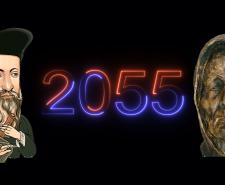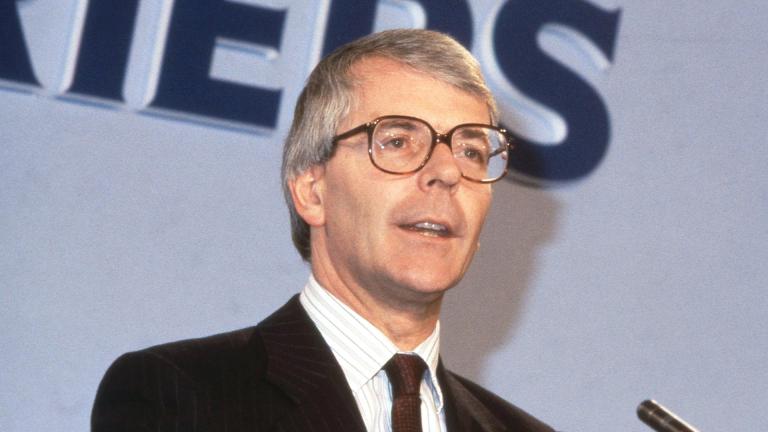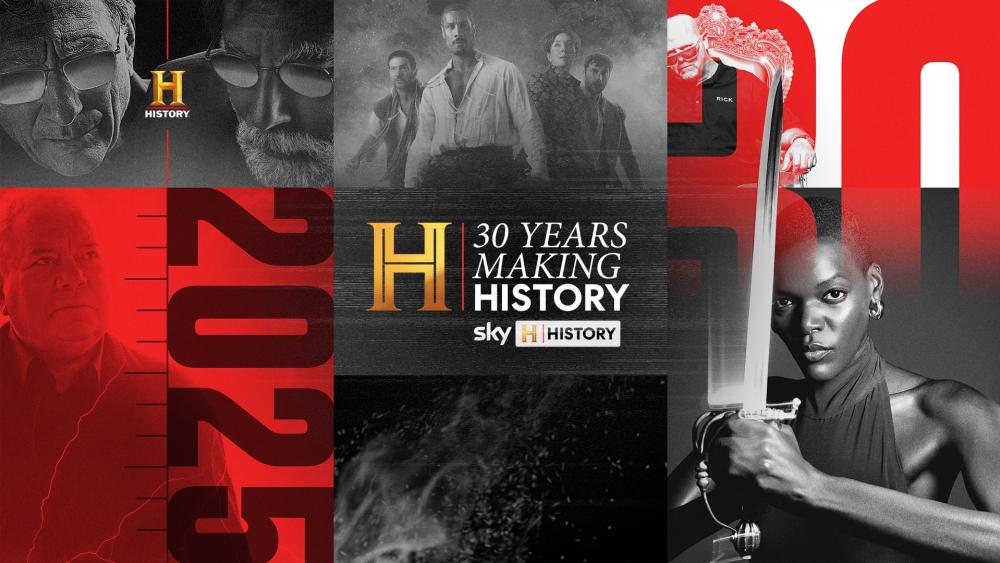
Read more about Predictions

Sky HISTORY is now 30 years old! We began back in November 1995, treating viewers to a plethora of engrossing documentaries right from the start.
There’s no denying that 1995 was very different to 2025. Back then, social media, streaming and smartphones certainly weren’t standard aspects of everyday lives. That’s why we have changed with the times, embracing innovations of the digital age to keep ourselves fresh and relevant.
Three decades on, our passion for the past remains as strong as ever, as evidenced by shows like Witches of Essex and Battle Treasures. All the same, the team at Sky HISTORY continues to remember 1995 fondly. Here’s our vivid snapshot of the era.
Many big-name actors have brought Batman to cinematic life over the years — from Adam West in the 1960s to Robert Pattinson in the 2020s. Quite possibly the most underrated portrayal of the Caped Crusader, however, is Val Kilmer’s in Batman Forever.
Brits obviously approved, making the film the highest-grossing of 1995 at the UK box office. Super-spy James Bond also returned that year. GoldenEye was the first Bond film since the end of the Cold War, with Pierce Brosnan slipping into 007’s tux for the first time.
When it comes to British TV in 1995, it’s a story of both beginnings and endings. The popular shows Bullseye, The Krypton Factor and Challenge Anneka all came to the end of their respective lengthy runs.
Conversely, many shows now considered ‘90s classics debuted this year. Examples include soap Hollyoaks, sitcom The Thin Blue Line and game show Can’t Cook, Won’t Cook.
The Britpop revolution was underway in 1995, with Oasis and Blur battling for chart supremacy. The latter got bragging rights when Country House beat Oasis’s Roll With It to the UK singles chart’s summit.
Boybands also reigned supreme. As 1995 began, East 17 were at the top of the UK singles chart with Stay Another Day, a song inspired by a tragedy in band member Tony Mortimer’s family. Meanwhile, Take That scored number-one singles before Robbie Williams left the group in July.

Throughout the ‘90s, Manchester United seemed almost unstoppable on the football scene. However, in 1995, they found themselves locked in a tight race for the Premier League title.
The pressure got to them as early as January, when their most talismanic player Eric Cantona assaulted a spectator during a match. The subsequent fallout saw Cantona sit out the rest of the season, with Blackburn Rovers eventually lifting the Premiership trophy.
After the Premiership season wrapped up, the annual World Championships in Athletics got underway in Gothenburg, Sweden. There, on 7th August, British athlete Jonathan Edwards set the world record for the longest triple-jump distance. It’s a record that remains unbroken more than 30 years later.
Elsewhere, in Formula One, Michael Schumacher was well on his second World Championship for Benetton, following his narrow (and controversial) title success over Damon Hill in 1994. The biggest news of the season, however, would break on 16th August as it was announced he’d join Scuderia Ferrari for 1996. The legendary partnership would ultimately result in a further five championships for the German driver between 2000 and 2004.
UK Prime Minister John Major eked out victory in the 1992 general election, seemingly against the odds. Just three years later, the Conservative Party’s uncharismatic leader was thoroughly embattled.
By then, Tony Blair’s resurgent Labour Party was well ahead of the Tories in opinion polls. However, Major’s bitterest enemies were arguably within his own ranks. In a desperate bid to heal these divisions, Major triggered a party leadership contest in June 1995.
Major won it comfortably, but possibly only because many Tory heavyweights opted not to stand. The Conservatives remained riveted by infighting and unpopular with the public. The 1997 general election was predictably disastrous for the Tories, but finally put the Major government out of its misery.
It was a time when the iPhone was barely a glint in Steve Jobs’ eye, but did see the launch of a different much-hyped tech product. That was desktop operating system Windows 95, when Microsoft — rather than Apple — was the all-conquering tech behemoth of the day.
Many features that have since become mainstays of Windows, like the Start menu and taskbar, were first introduced in Windows 95. It was also an OS built from the ground up for the World Wide Web, at that point still in its infancy.
Email certainly wasn’t a mainstream thing in 1995 — but today, it can easily keep you in the loop about upcoming TV shows. Just subscribe to the Sky HISTORY newsletter to learn what we’ve got lined up.